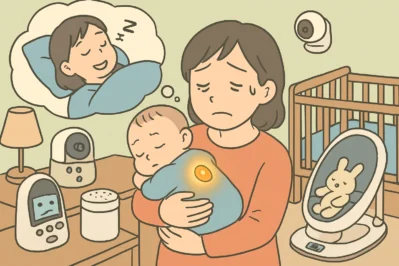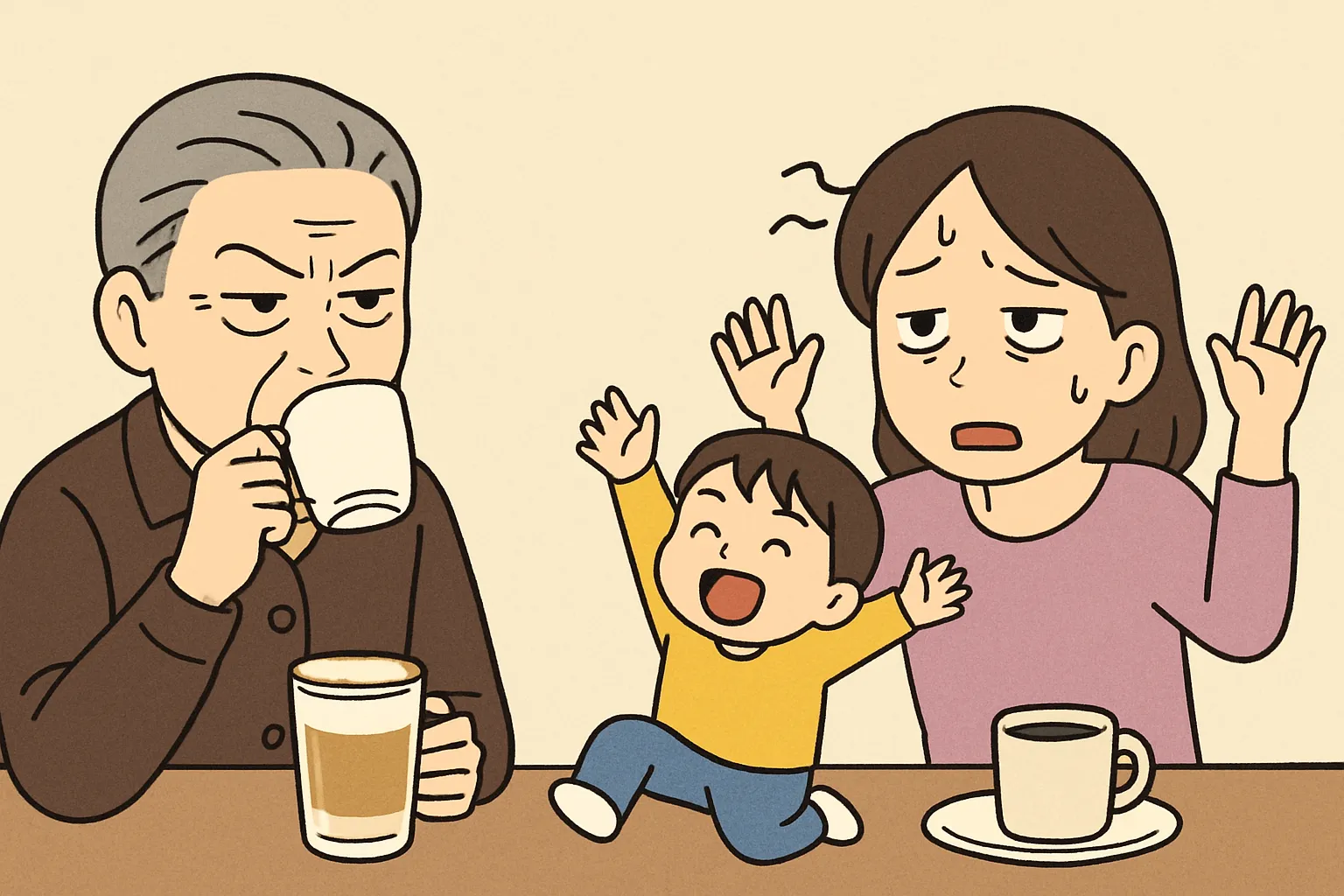From ‘Tongjam’ to ‘Jangbippal’: Ace Korean Newborn Care
안녕하세요! Welcome to Maeil Hangeul, your go-to blog for upgrading your Korean skills!
Are you or your friends welcoming a new baby into the family? Or perhaps you’re just fascinated by modern family life in Korea? Today, we’re diving into the world of Korean parenting, specifically sharing tips for taking care of a newborn. You’ll learn the essential vocabulary to chat with Korean friends about their little ones, understand parenting vlogs, and even share your own wisdom.
Lately in Korea, “scientific parenting” (과학 육아) is a huge trend! Parents are all about finding the most effective, data-driven methods and items to raise their children. This has led to a boom in YouTube channels and online communities where parents share reviews of “육아템” (parenting gear). Let’s learn the language you need to join the conversation!
Key Expressions for New Parents
Here are some essential phrases you’ll hear among new parents in Korea.
1. 육아는 장비빨이다 (Yuganeun jangbipparida)
- Pronunciation: [Yu-ga-neun jang-bi-ppal-i-da]
- English Meaning: “Parenting is all about the gear.”
- Detailed Explanation: This is a very popular and modern slang phrase. It combines 육아 (yuga – childcare/parenting) with 장비 (jangbi – equipment/gear) and 빨 (ppal), a suffix that means “thanks to the power/effect of something.” Parents say this half-jokingly to emphasize how much easier and more efficient parenting becomes with the right gadgets (like smart bassinets, bottle sterilizers, etc.). It’s an informal and witty expression used among friends.
2. 등 센서 (Deung senseo)
- Pronunciation: [Deung sen-seo]
- English Meaning: Back sensor
- Detailed Explanation: This is a cute and incredibly relatable slang term. 등 (deung) means “back,” and 센서 (senseo) is the Korean way of saying “sensor.” A baby is said to “have a back sensor” (등 센서가 있다) if they wake up the very second their back touches the mattress. It humorously describes a baby who only wants to sleep while being held.
3. 통잠 (Tongjam)
- Pronunciation: [Tong-jam]
- English Meaning: Sleeping through the night
- Detailed Explanation: This is the ultimate goal for any new parent! 통 (tong) means “whole” or “unbroken,” and 잠 (jam) means “sleep.” So, 통잠 literally means “whole sleep.” When a baby finally sleeps for a long, uninterrupted stretch, parents celebrate that the baby is finally having 통잠. You might hear a tired parent say, “우리 아기 통잠은 언제 잘까요?” (When will our baby ever sleep through the night?).
4. 독박육아 (Dokbang-yuga)
- Pronunciation: [Dok-bak-yu-ga]
- English Meaning: Solo parenting / One-person-show parenting
- Detailed Explanation: This term carries a more serious social nuance. 독박 (dokbak) comes from the slang ‘독박 쓰다’, which means to take on all the responsibility or blame for something alone. Combined with 육아 (yuga – parenting), it refers to the situation where one parent is left to handle all childcare duties alone, without help from their partner. While it can be used to describe a temporary situation (e.g., when a spouse is on a business trip), it’s often used to discuss the societal issue of unequal childcare responsibilities.
Example Dialogue
Let’s see how these words are used in a real conversation between two friends, Minjun and Sora.
A (Minjun): 소라야, 조카는 잘 커? 언니는 좀 쉴 만해?
(Sora, how’s your niece doing? Is your sister getting any rest?)
B (Sora): 힘들어 보여. 아기가 등 센서가 엄청 예민해서 내려놓기만 하면 깬대.
(She looks exhausted. The baby’s back sensor is so sensitive, she apparently wakes up the moment she’s put down.)
A (Minjun): 아, 정말? 요즘 유튜브에서 난리 난 그 스마트 침대 써보라고 하지 그랬어. 육아는 장비빨이다!
(Oh, really? You should tell her to try that smart bassinet that’s all over YouTube. Parenting is all about the gear, you know!)
B (Sora): 좋은 생각이다! 형부가 출장 가서 며칠째 독박육아 중인데… 통잠 잘 수만 있다면 뭐든 할걸.
(That’s a great idea! Her husband is on a business trip, so she’s been solo parenting for days… She’d do anything to get a night of uninterrupted sleep.)
Culture Tip: The “Jangbippal” Phenomenon
The phrase “육아는 장비빨이다” isn’t just a funny saying; it points to a major cultural trend in Korea.
Parenting shows like The Return of Superman (슈퍼맨이 돌아왔다) have given the public a peek into celebrity family life, often showcasing the latest and greatest “육아템” (parenting items). This, combined with a competitive society, has fueled a desire among parents to provide the very best for their children.
This has created a huge market for parenting influencers (“육아 인플루언서”) on Instagram and YouTube. They post detailed reviews of everything from strollers to bottle warmers, and their recommendations can make a product sell out overnight! So, if you want to sound like a real insider, mentioning a popular 육아템 you saw on a Korean vlog will definitely impress your friends.
At the same time, the term 독박육아 highlights an ongoing social conversation. It reflects the challenges many parents, particularly mothers, face. Understanding this term shows a deeper comprehension of not just the language, but the social fabric of modern Korea.
Let’s Practice!
Time to check your understanding.
- Your friend complains that her baby cries every time she puts him in his crib. You can say: “아, 아기한테 _______ 있나 보다!” (Ah, it seems the baby has a ________!)
- Imagine your friend bought a high-tech bottle sterilizer that saved her a lot of time. How would you comment on this using one of today’s key expressions? (Try making your own sentence!)
You did an amazing job today! Parenting is a universal experience, and now you have the words to share in it, Korean-style.
Try using one of the expressions you learned today in the comments below! We’d love to see your sentences.






